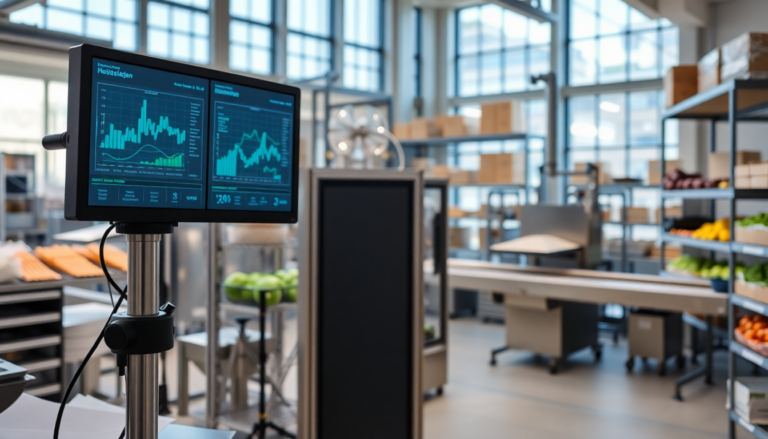Argomenti trattati
The food and beverage industry is experiencing a seismic shift, and it’s not just about new recipes or marketing gimmicks. Artificial intelligence (AI) is taking center stage, revolutionizing everything from supply chain management to consumer experiences. As companies like Nestlé embrace these technologies, they are discovering that AI isn’t merely a futuristic concept; it’s an integral part of their operations today. However, while the potential of AI is vast, it comes with its own set of challenges that must be navigated carefully.
Transforming uncertainty into foresight
Historically, the food industry has grappled with numerous uncertainties, whether it’s unpredictable harvest yields or fluctuating consumer tastes. AI offers a beacon of hope, transforming guesswork into informed predictions. At Nestlé, for example, AI is employed to enhance demand forecasting accuracy, enabling dynamic adjustments in production and inventory that traditional methods simply can’t match. This shift allows for a more streamlined operation where resources are allocated more efficiently, reducing both waste and costs.
Furthermore, machine learning algorithms analyze years of research and development data to expedite the creation of products that meet evolving health, taste, and nutritional standards. These aren’t just isolated projects; they represent a broader trend of integrating AI into everyday processes, delivering tangible results.
Balancing efficiency with sustainability
As the world grapples with the pressing need for sustainable food production, the role of AI becomes even more crucial. Sustainable practices in agriculture and packaging are essential, but AI serves as a powerful ally in these endeavors. Companies are now using AI to optimize carbon tracking across complex supply chains, aiding in smarter sourcing decisions and significantly reducing emissions.
In manufacturing, AI-driven vision systems help minimize waste and enhance energy efficiency, aligning with corporate environmental goals. However, while embedding AI into operations, it’s vital to maintain a focus on the core values that define quality food. Authenticity, transparency, and trust should remain at the forefront, ensuring AI complements rather than replaces the artistry and humanity intrinsic to the food industry.
The human touch in AI-driven creativity
One of the most appealing aspects of generative AI is its ability to produce content rapidly—be it marketing campaigns or product ideas. Yet, speed does not always equate to quality. The culinary world is deeply rooted in culture and emotion; what resonates in one region may not have the same effect elsewhere. Thus, it’s crucial for local teams to have the flexibility to adapt broader AI-generated solutions to fit their unique contexts.
Concerns about AI bias also loom large, particularly when datasets fail to represent the diverse tapestry of global consumers. For multinational food brands, responsibly scaling AI must include a commitment to equity and inclusivity at the data level, ensuring that all voices are heard and represented in the decision-making process.
The evolving role of CIOs and CTOs
In this rapidly changing landscape, the roles of Chief Information Officers (CIOs) and Chief Technology Officers (CTOs) are evolving beyond mere technology management. They are stepping into the shoes of growth enablers and data stewards, orchestrating the symphony of digital transformation. Success with AI hinges not solely on implementing advanced models but also on nurturing talent and fostering a culture of governance and experimentation.
It’s about creating an integrated framework that spans all functional areas within the organization, aligning with the brand’s ethos and risk appetite. Companies that embrace AI as a core competency rather than an add-on are likely to thrive in this new environment. Yet it’s not a race to the finish line; rather, it’s about reimagining traditional practices and adopting innovative workflows that can drive real change.
Looking ahead: AI’s potential in food and beverage
As we navigate the early chapters of AI’s integration into the food and beverage sector, the trajectory is becoming clearer. Personalization, sustainability, and operational efficiency are converging, with AI acting as the catalyst for this transformation. Now is the time for tech leaders to take proactive steps—not as gatekeepers, but as architects of bold, responsible, and scalable systems that facilitate this change.
Ultimately, AI is poised not only to redefine the future of food but also to shape how we nourish the planet. The conversations about ethical implementation and the need for a human touch will continue to evolve, reminding us that while technology has the power to transform, it is the values we uphold that will truly define the future of our culinary landscape.

